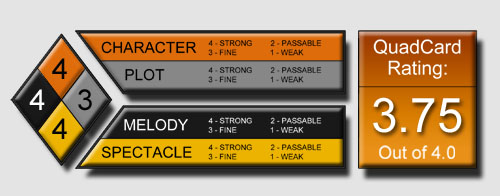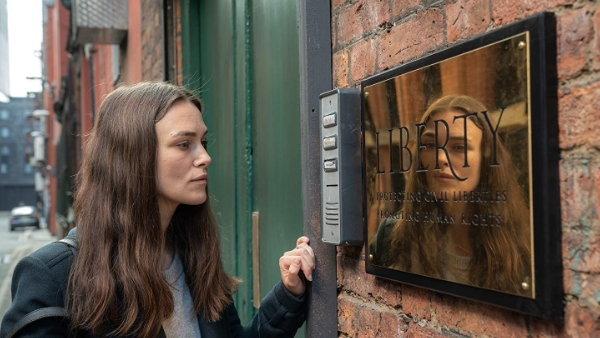
“Life has a gap in it,” says Sarah Silverman, as Gerdaline, a recovering alcoholic. “You don’t go crazy trying to fill it, like some lunatic.” This is the conflict Sarah Polley’s poignant and sobering film, Take This Waltz, wrestles with, as it takes a look at the human fear of the in between places in time.
Michelle Williams is pitch-perfect as Margot, a young freelance writer, who the effortlessly seductive Daniel (Luke Kirby) 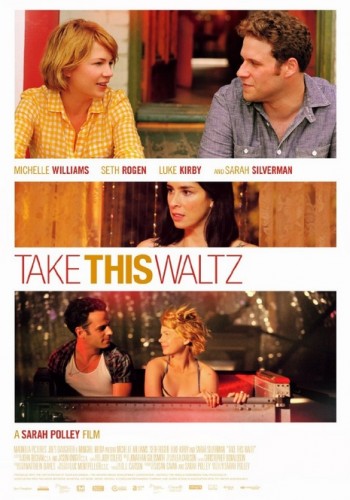 describes as, “restless in a kind of permanent way.” Margot is married to Lou (Seth Rogan), a cookbook author whose specialty is chicken. There is nothing terribly wrong with Margot and Lou’s (Seth Rogan) relationship. In fact, they exemplify the ideal of spouse as best friend. They laugh together, they play together, they even love each other, and yet something is missing. Their love is comfortable, but no longer exciting, and therefore Margot feels unfulfilled.
describes as, “restless in a kind of permanent way.” Margot is married to Lou (Seth Rogan), a cookbook author whose specialty is chicken. There is nothing terribly wrong with Margot and Lou’s (Seth Rogan) relationship. In fact, they exemplify the ideal of spouse as best friend. They laugh together, they play together, they even love each other, and yet something is missing. Their love is comfortable, but no longer exciting, and therefore Margot feels unfulfilled.
Then, she meets Daniel while out of town on a writing assignment, and the two are continuously thrown together by chance, first when they are seated next to each other on the flight home, and then when they share a cab from the airport, only to realize they live directly across the street from one another. This is the one element of the story that feels just a little too improbable, but it’s easy to forgive Polley for it, as the rest of the film is composed in such a way that it is like watching real life unfolding on the screen.
At first glance, Take This Waltz, may appear to have the makings of your typical romantic drama: a happily married couple that become complacent, a longing for something more, and a temptation that threatens to erupt the seemingly calm state of things. Yet, as the story slowly develops, and the characters are forced to face hard truths, Polley reveals a narrative intricately designed to disprove any cliché one may predict.
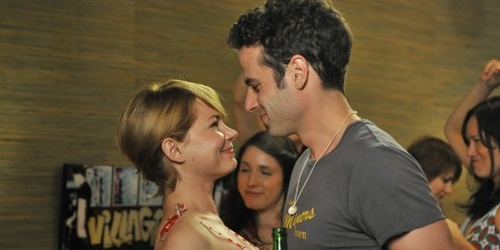
The theme of internal eruption or self-destruction the characters exude is juxtaposed with several television news announcements of natural disasters occurring around Canada, as the couple watches from their home in Toronto. There are other visual queues layering the message Polley wishes to convey with this story, including a scene on a spinning carnival ride between Margo and Daniel where The Buggle’s “Video Killed the Radio Star” plays loudly in the background, and strobe lights dance across the actor’s faces. The scene sucks you in such a way that you feel disappointment, as the characters do, when the ride comes to a stop. No one says a word, and no one needs to.
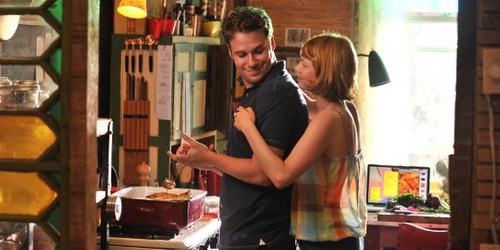
Margo is drawn to Daniel by the intoxication of lust he stirs up inside of her. She is torn between her desire for Daniel and her commitment to Lou. While this appears to be the main conflict of the story, Polley suggests that life and love are just not that simple. The true conflict of the film rather, is one of old verses new, and the internal struggle of coming to terms with the two. While new inevitably feels good in the beginning, trying to sustain the new forever proves an exercise in futility.
G-S-T RULING:
As an actor, Williams is a master at depicting these struggles, and the heartbreak revealed in her performance here is perhaps even more haunting than in films like Blue Valentine and My Week With Marilyn, because of the resonance to everyday human life the story is able to evoke. Comedians Seth Rogan and Sarah Silverman also shine in their dramatic roles, showing their range as actors. Take This Waltz will excite and surprise you with its sometimes gentle, often brutal truths, and it’s a story that will not quickly leave you.
